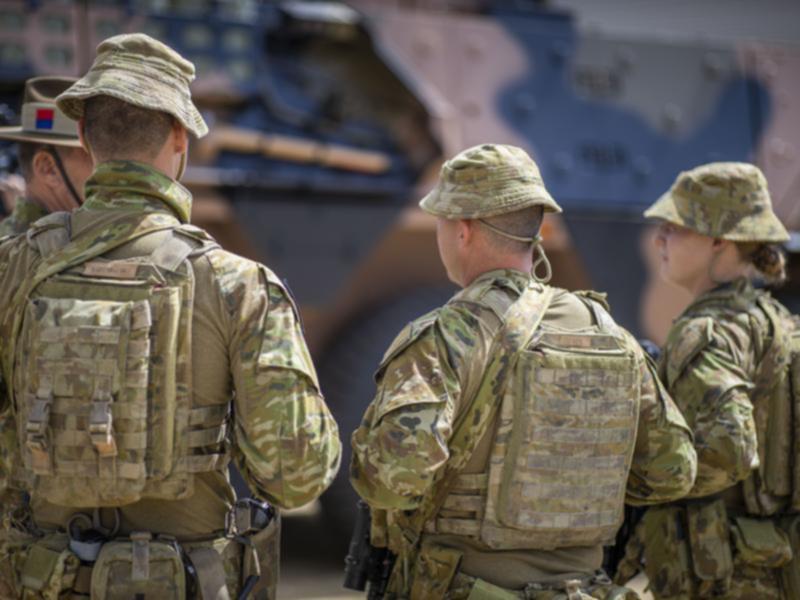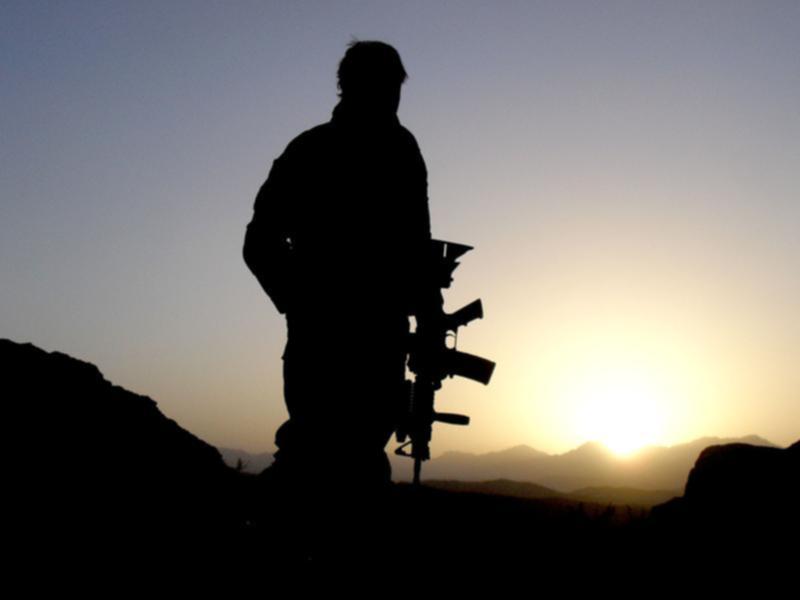Inquiry to probe ADF sexual violence as part of sweeping Royal Commission response
Sex offenders will be discharged from the ADF and sweeping changes made to how the military deals with sexual violence and misconduct as part of reforms to reduce suicide among serving personnel and veterans.
Sex offenders will be discharged from the Australian Defence Force and sweeping changes will be made to how the military deals with sexual violence and misconduct as part of comprehensive reforms to reduce suicide among serving personnel and veterans.
Three months after the damning final report was handed down, the Government released its response to the Royal Commission into Defence and Veterans’ suicide on Monday, agreeing to 104 of the 122 recommendations and vowing to “do better”.
Chief among them, a new statutory oversight body, known as the defence and veterans’ services commission, will be legislated and set up by next September to oversee “enduring and systemic reform” to improve suicide prevention. An interim body will begin work immediately.
Sign up to The Nightly's newsletters.
Get the first look at the digital newspaper, curated daily stories and breaking headlines delivered to your inbox.
By continuing you agree to our Terms and Privacy Policy.A separate wellbeing agency focusing on easing the transition from military to civilian life will be created with input from the veteran community, and an independent inquiry will also be conducted to respond to sexual violence within the military.
“Lest we forget is Australia’s most solemn promise, a promise to remember the fallen, to honour their sacrifice and care for their loved ones left behind … We owe them more than sentiment,” Anthony Albanese said.
“We can’t bring back those that we’ve lost. But we can fight to stem this terrible epidemic and we can strive to bring it to an end.”
The royal commission, handed down in September after three years of hearings, found that current and former service personnel were 20 times more likely to die by suicide than in combat, attributed in large part to cultural failings within defence.
At least 1677 serving and former ADF members took their own lives between 1997 and 2021, but the royal commission added the true number could be higher than 3000.
Mr Albanese and ministers Richard Marles and Matt Keogh paid tribute to Julie-Ann Finney, who became a leading advocate for a Royal Commission after losing her 38-year-old son David to suicide.
“It’s for these families, for our serving personnel, for our veterans, that we have worked so quickly to produce this response to the royal commission because we deeply understand the urgency and importance of doing this work,” Mr Keogh said.

Ms Finney said she was grateful for the Government’s “exceptional” response, and that the independent oversight body would have given her son somewhere to go and get help.
But, she said there was a long way to go and she wanted to see more detail to ensure lives would actually be saved.
“So many times I’ve just felt so elated with responses only to find out they’re not what we want,” she said.
“At this stage, the response is just words and we need to see action... Some of these issues are still occurring to this day.”
She said until she sees action, she will continue to discourage people from enlisting in the defence force.
“That is the only way we are going to get the government, the DVA, RSL and defence, to hear us is to have their recruitment numbers down,” she said.
The Government noted 17 recommendations, while one — which controversially called for the removal of the “service differential” that provides higher compensation for personnel permanently injured during war-like service than those in training exercises — was rejected.
Mr Albanese acknowledged the Royal Commission had ended up with a greater focus on sexual misconduct than had been anticipated, because of the sheer amount of evidence presented to it.
“Clearly we need to do better,” he said.
The 2024 workplace experience poll, carried out in April, found 37 per cent of personnel had experienced “unacceptable bahviour” including sexual misconduct and bullying in the previous 12 months.
To address the serious cultural issues outlined in the Royal Commission, the Government has agreed to set up an independent inquiry to probe sexual violence in the military.
Mr Keogh said the terms of reference and the timeline had not yet been determined, but stressed it was a priority.
“We’re working through the detail of that, but of course that inquiry will build upon a number of inquiries that were undertaken by the previous Labor Government, and we’ll be able to build upon the work that’s come before them, and we can talk about detail when we launch those inquiries,” he said.
The Government also agreed that those found guilty either in criminal or military courts of sexual violence offences — including stalking and intimate image abuse — should face automatic discharge, subject to fair process.
Those found to have engaged in sexual and related offences, including harassment and unwanted touching, will need to demonstrate why they should not be discharged.
Workplace relations will also be strengthened to ensure victims do not have to come into contact with alleged perpetrators during sexual misconduct investigations. If a person is found guilty, then “where possible and appropriate” victims will not be posted with their perpetrator.
More broadly, there will be a greater onus on preventing sexual misconduct within the military, with a comprehensive strategy to be developed and training on managing sexual misconduct to be mandatory for all leaders.
Work will also be done to foster a stronger culture of reporting unacceptable behaviour, and anonymous sexual misconduct data will be published each year detailing incidents and outcomes.
The Government has also committed to adding “emotional intelligence” as a key criteria in considering leaders and promotions.
Given the ADF is dealing with plummeting morale manifesting in a recruitment and retention crisis, Mr Keogh said while the recommendations marked a significant step, “there’s more work to do, and we’re committed to doing that work”.
Elsewhere, more work will be done to support serving members transitioning out of the military.
The Government will direct the Department of Veterans’ Affairs to work with the veteran community to design a new agency focused on wellbeing.
The Government gave in-principle support to establishing a brain injury program to examine blast impact, with the new taskforce to consider this in conjunction with Australia’s Five Eyes partners.

As part of the Government’s response, the Inspector-General of the ADF will be given greater powers to probe military deaths suspected to be suicides, with the watchdog to regularly review its own inquiries into suicides to determine common themes.
The IGADF will also conduct more frequent military justice-related audits, and the body will be made more transparent and accountable. It has also been instructed to establish an inquiry into commanders’ abuse and weaponisation of the military justice system.
The Royal Commission recommended future Inspector-Generals come from outside military service, which the Government noted.
A special taskforce within the prime minister’s department will lead the implementation of all recommendations.
In handing down its response, the Government also paid tribute to senator Jacqui Lambie, a former soldier who has been a leading advocate for serving personnel, veterans and their families.
Senator Lambie said while there was more work to do, the Government’s response was a “very good start” — especially the new statutory entity.
“These reforms must bring real enduring change. It’s essential that this body is independent and can provide frank and fearless advice to Ministers,” she said.
Defence Chief David Johnston, Defence Secretary Greg Moriarty and DVA secretary Alison Frame said in a shared statement they were “committed” to working with the Government to enact the response and deliver the recommendations.
“We recognise that systemic change is needed with more to be done. The government’s response is our guidance for real, meaningful and enduring reform to not only address suicide in the defence and veteran community, but to improve veteran wellbeing in many other aspects,” they said.
They acknowledged some recommendations are “large, complex and intersecting”.
“Elements of reform will take time and this is the start of a multi-year reform process,” they said.
The Coalition said it remained committed to working with the Government, and called for Labor to work at pace to consult and legislate the new statutory body.
“It is hoped this, as well as the other accepted recommendations, will go far in caring for the physical and mental health of the brave men and women who served our nation with honour and bravery,” they said.
Greens defence spokesman David Shoebridge said the Government’s response was “genuine and positive and its commitment to act is welcome”.
But he was critical of the Government’s decision not to reform the service differential, saying keeping the distinction was “unfair” and “plainly wrong”.
Lifeline 13 11 14
beyond blue on 1300 22 4636.
If you are a current or former ADF member, or a relative, and need counselling or support, you can contact the Defence All-Hours Support Line on 1800 628 036 or Open Arms on 1800 011 046.

